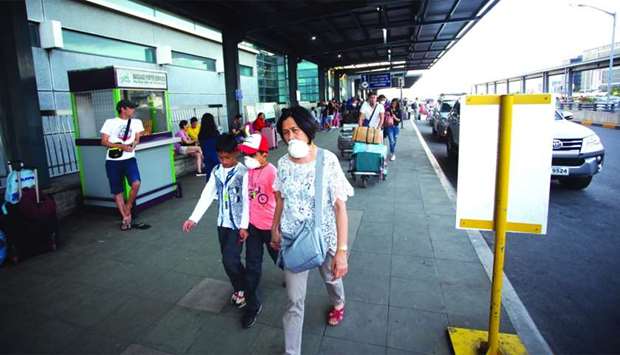Aviation Page - Beyond the Tarmac
On January 12, Taal Volcano erupted in the Batangas Province in the Philippines, causing a 1km-high ash plume, along with rumbling sounds and tremors, triggering the mass evacuation of more than 50,000 people.
Taal volcano, located some 70km south of Manila, caused disruption to flight operations at the capital city’s main airport, Ninoy Aquino International, and its second airport, Clark International.
This is because airborne ash and ballistic fragments from the eruption posed hazards to aircrafts.
Fallen ash covered the runways at Manila’s international airport on January 12 night, reports said. All departing and arriving international and domestic flights were suspended “due to volcanic ash in the vicinity of the airport” and nearby air routes, the Civil Aviation Authority of the Philippines said.
Taal is a very small volcano, but a dangerous one, according to volcanologists. They say it is unique because it is a “volcano within a volcano.”
One of the world’s smallest volcanoes, Taal is among two dozen active volcanoes in the Philippines, which lies along the so-called Pacific “Ring of Fire,” a seismically active region that is prone to earthquakes and volcanic eruptions. Taal Volcano Island is still a “permanent danger zone.”
In addition to direct revenue losses, airlines to and from the Philippines are likely to have faced higher costs due to disruption caused by volcanic ash, including passengers’ re-accommodation, flight diversions and cancellations.
The incident proved to us what modern life would be like without air transport!
The growing availability of affordable air travel has considerably widened aviation’s role in our society.
Air travel is no longer a luxury commodity. This year, passenger numbers may reach 4.72bn, up 4% on 4.54bn in 2019.
Currently, the aviation industry supports $2.7tn (3.6%) of the world's gross domestic product (GDP). If aviation were a country, it would rank 20th in size by GDP.
The aviation industry supports 65.5mn jobs around the world.
The air transport industry has not only underpinned wealth creation in the developed world, but has also brought enormous benefits to developing economies by unlocking their potential for trade and tourism.
Any disruption to global air transport means global economic growth and development will be curtailed.
Now looking at the impact of the Taal volcanic disruption, while some of the disrupted trade could have been deferred, that was not the case for products that were either fast-perishing (fresh-cut flowers, vegetables such as green beans, exotic fruit) or crucial for just-in-time production processes (high-value items which are also low-weight such as electronic parts and machine components).
That said, it is too early to assess the Taal volcanic impact on the aviation industry. Obviously, this is because it is still emitting ash and steam, albeit at lesser quantities.
But volcanologists are still warning against a dangerous or hazardous explosion "within hours or days." Taal's activity may last from days to several months, based on its eruption history, they say.
Although the Philippines is currently bearing the brunt of the Taal volcano eruption, regional economies too may get badly hit in the medium term as suppliers to the transport and hospitality sector are already suffering indirect losses.
Further, economic output may get broadly reduced as lost employee income translates into lower downstream consumer and business spending.
Clearly, air transport is a driver of global trade and e-commerce, allowing globalisation of production. Aviation’s advantage over other modes of transport in terms of speed and reliability has contributed to the market for “same-day” and “next-day” delivery services and transportation of urgent or time-sensitive goods.
Nearly 90% of business-to-consumer (B2C) e-commerce parcels are currently carried by air. The e-commerce share of scheduled international mail tonne kilometres (MTKs) grew from 16% to 83% between 2010 and 2016 and is estimated to grow to 91% by 2025.
To the extent that travel-related infrastructure is damaged or destroyed; the economic impact of natural disasters like the Taal volcanic ash eruption will last for a long time — potentially a number of years!
n Pratap John is Business Editor at Gulf Times.


